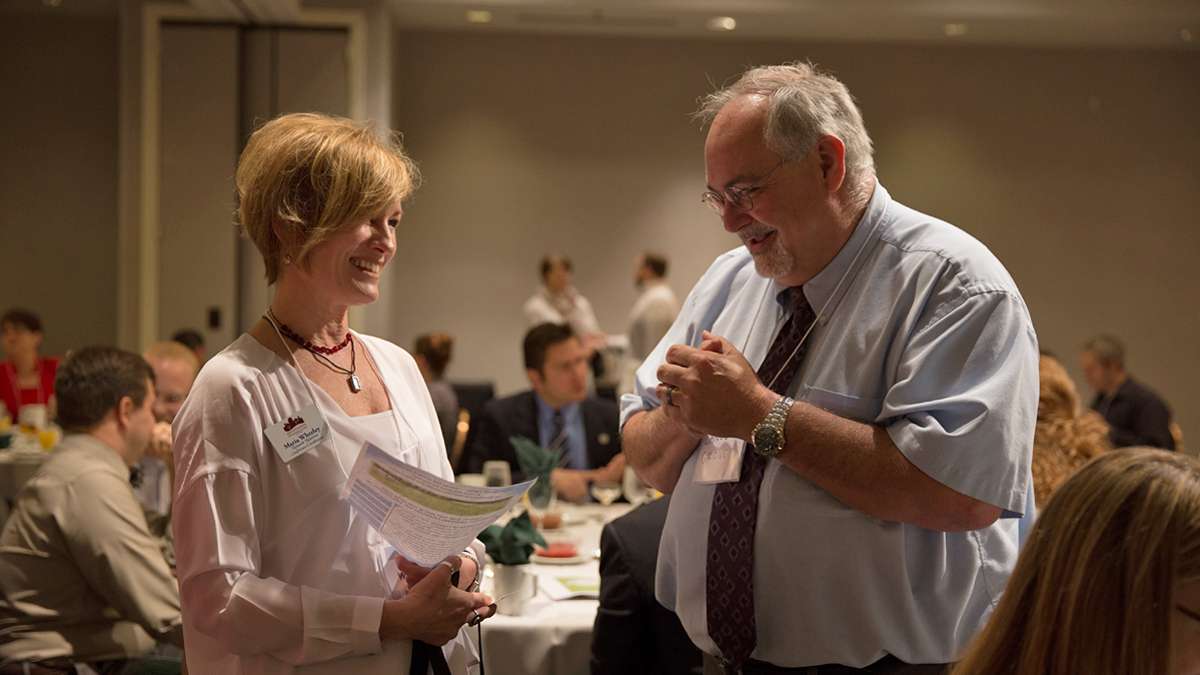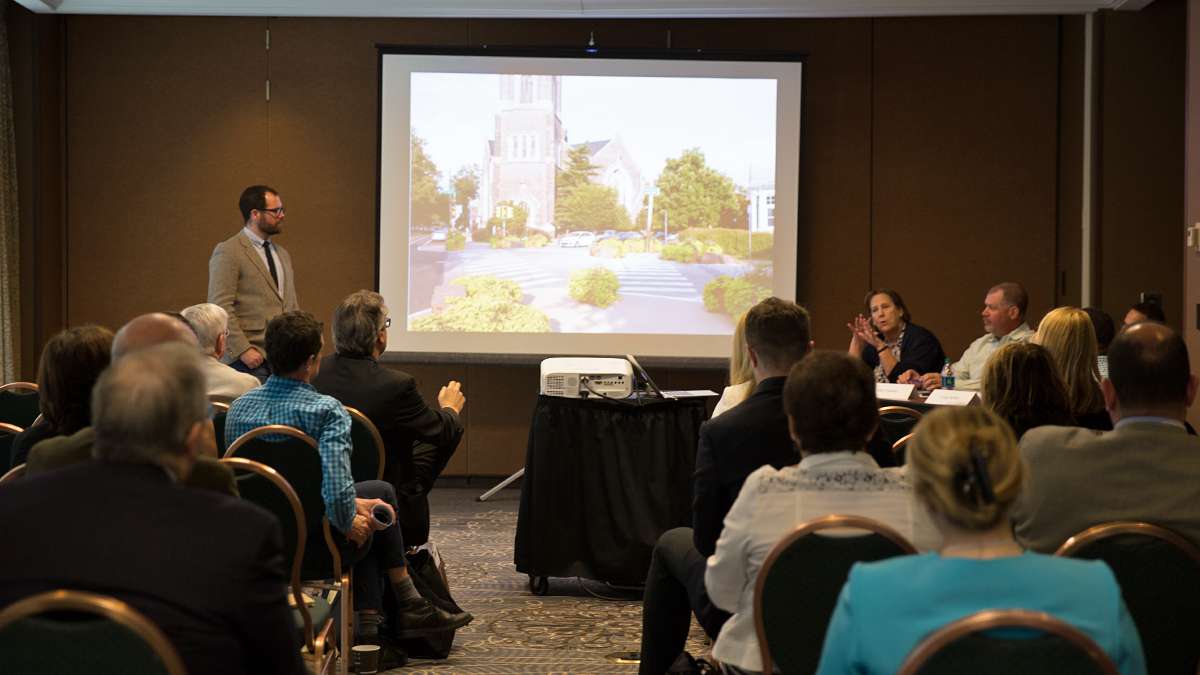Ideas worth stealing from Keystone Crossroads’ conference
On Tuesday we heard from urban thinkers about their approaches to the many challenges Pennsylvania cities face.
On Tuesday we held a conference in Harrisburg called “Urban Ideas Worth Stealing,” and we heard from urban thinkers about their approaches to the many challenges Pennsylvania cities face.
We’ll be sharing more in the coming weeks, but meanwhile here are some of the highlights that came up in our breakout sessions.
“Out With The Old”: How preservation can be a tool for downtown redevelopment
You can’t save every building, and actually, you shouldn’t. That would be living in the past. Along those lines, don’t think only about what a historical building once was. Figure out what it could become — and whether it could have any economic value. For instance, could it be a home for cultural programs and events that generate revenue and create jobs? Will it be a draw for young professionals the city needs in order to expand its tax base?
A good preservation project is one that tells a unique story and offers an experience that doesn’t already exist. An example: SteelStacks, the 10-acre arts campus in Bethlehem built on the ground of a former steel mill. It tells the story of the region’s industrial heritage. But it also has a present-day function and hosts concerts and films the city wasn’t offering.
Basically, if your idea of preservation is building a lot of one-room museums that people are only going to visit once…you’re doing it wrong.
Little boxes: Approaches to overcoming local government fragmentation
Municipalities shouldn’t look to the state or federal government to make changes or initiate new programs that might be beneficial at the local level. There is, as Berks County Community Foundation President Kevin Murphy put it, simply too much dysfunction in Harrisburg and Washington.
Beyond “Right to Know”: Creating civic value with open data
Panelists Julie Snyder, director of the Office of Data and Digital Technology, and Erik Arneson, director of the Office of Open Records, explained the steps ahead for implementing the Wolf administration’s recent open data executive order. Snyder emphasized the idea of culture change as a critical part of implementing an open data policy and transitioning staff from a mindset of issuing progress reports to sharing actual department data. To chart the progress of state goals and initiatives, the Wolf administration wants to steal Maryland’s StateStat concept to measure departments’ progress, Snyder said.
And for his part, Azavea founder Robert Cheetham suggested that the state should require ride-hailing apps like Uber and Lyft to make their trip data public. These companies produce reams of data on travel patterns that could be really useful to transportation planners in thinking about service planning for transit. That suggestion is especially timely, since the General Assembly will soon vote on a bill that would allow those companies to operate across Pennsylvania. Cheetham was making a broader point that open data policies should aim to round out information collected by the public sector with additional data sets from academia, non-profits, and businesses.
Adaptive cities: Green infrastructure and resilience for a warming world
Municipalities have to prioritize climate change adaptation, not just respond to the effects, like flooding and heat waves. In particular, the panelists said they’d like to see more focus on measures like raising homes in the flood plain, creating storm water diversion plans, and reducing carbon emissions. Lycoming County is working in Muncy Borough to try out some of these measures, while Philadelphia and Harrisburg are creating or have created long-range climate change adaptation plans. But all of these efforts require funding, which tends to get tied up when disasters happen.
Making leaders: Effective engagement strategies for empowered urban communities
Community planning, ironically enough, often excludes the people who actually live in a neighborhood. The panelists said that’s the wrong way to go about this whole thing. What to do instead? One idea is to engage community members early in the process, even giving them leadership roles in some of the design or planning work. Alex Gilliam from Public Workshop also suggested holding design workshops outside, at a park or playground in the community.
Complete streets on the cheap: Fast, inexpensive street changes that get big results
Pilot projects. Lots of pilot projects. Do a quick, cheap, temporary installation to demonstrate tangible value to a skeptical public or dubious politicians, and a short time later, more permanent street interventions will follow. We’ve seen this tactic in action at Philadelphia’s Spruce Street Harbor Park and Winterfest. Panelists also said streetscape improvements can spur economic development. As an example, Toby Fauver from PennDOT said the department worked with churches near a regional train station to improve their parking lots, opening them up for train riders; improving the lots cost $3 million (compared to $20 million for a new parking structure) and increased foot traffic along the nearby commercial corridor, leading to 10 new retail businesses in less than two years.
As for the rest of the conference, Auditor General Eugene DePasquale kicked things off with a talk about the two issues he said need to be addressed before Pennsylvania municipalities can grow: fiscal and education reform. DePasquale spoke specifically about underfunded municipal pensions, saying the state’s municipalities are underfunded by at least a combined $8 billion. He said until that’s fixed, these cities won’t be able to move forward.
Later, in a keynote address, Governor Tom Wolf spoke about the attraction of cities and the fact that state policy typically supports suburban, rather than urban, development.
Here are more reactions and ideas from the conference-goers who tweeted along.
WHYY is your source for fact-based, in-depth journalism and information. As a nonprofit organization, we rely on financial support from readers like you. Please give today.












